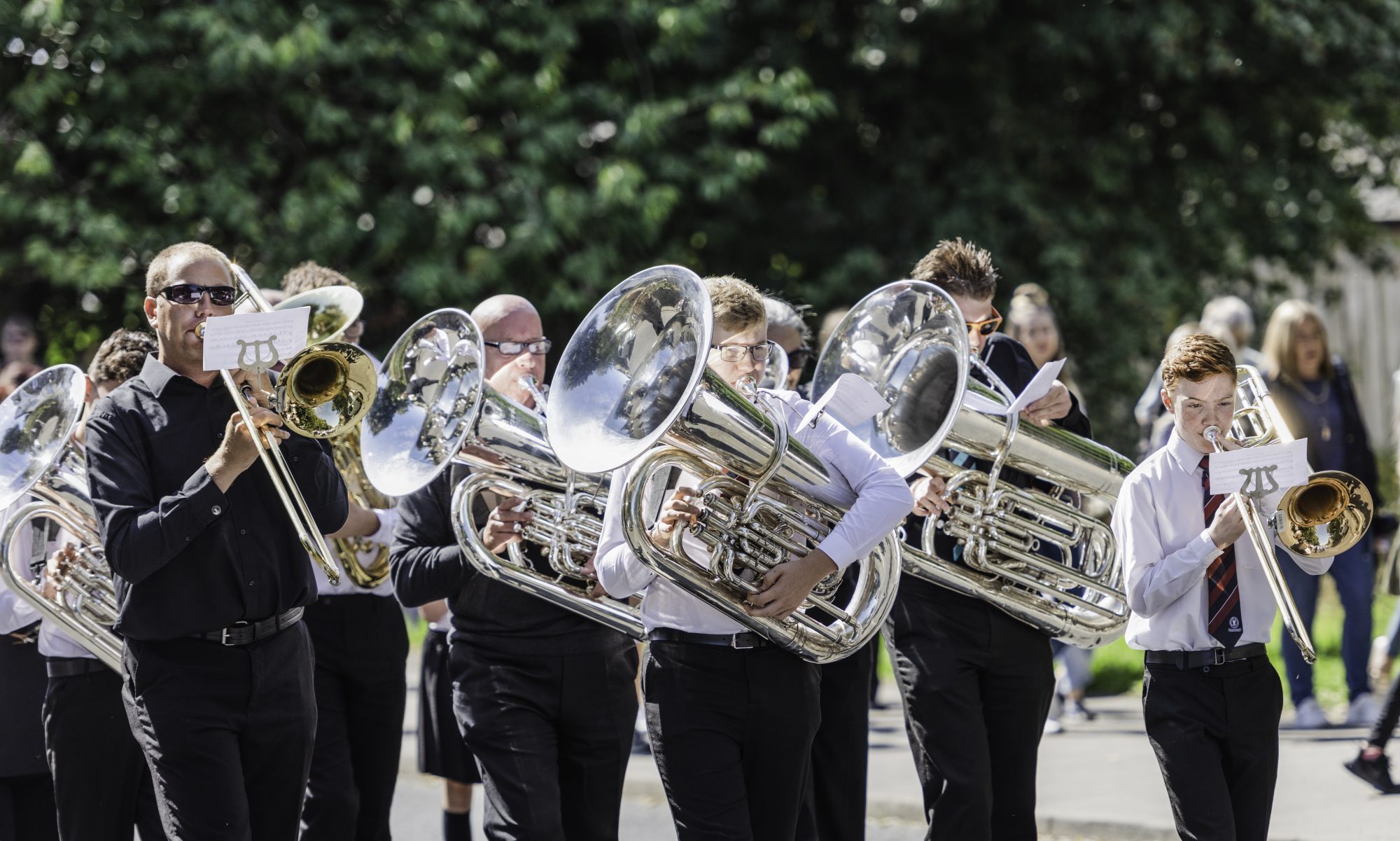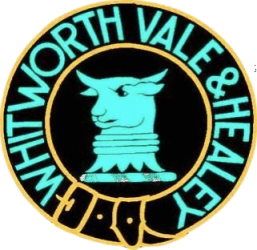The Early Years – courtesy of Stephen Lord
The band came into being due to the amalgamation of the former Whitworth Vale, and the Healey Hall Bands. It is doubtful if more than a few records exist of either band prior to amalgamation but as far as we can tell, Whitworth Band was founded in 1853 and is one of the oldest Brass Bands in the country.
Healey Hall Band became defunct on 25th August 1884 and presumably the amalgamation took place fairly soon after this date. The roots of both bands take us back over 150 years and Whitworth Vale and Healey Band have a fine and proud history.
Whitworth Vale band had their band-room at the former “Masons Arms” on the site of the present premises of J Taylor and Sons, Coal Merchants.
The Healey Hall Band was connected with the wool mill in Healey Dell.
The mill owner lived at Healey Hall, and the band rehearsed in the building between the hall and the farm. It is on record that Healey Hall band won third prize at the Belle Vue September contest in 1866. They must have severed their connection with the mill as latterly they met for rehearsal in an old barn-like building at Tonacliffe, which was demolished around 1940.
The newly formed band acquired a cottage at Bridge Mills, Whitworth, a part of the village, which was known as the “Hole Bottom”.
Post World War I 1918-1939
We do know that the band struggled to reform after the First World War, but around this time the band succeeded in securing the conducting services of Mr J Henry White. The band had lost a number of members in the Great War.
The Institute Band disbanded shortly after the cessation of hostilities, and a number of their players came to Whitworth Vale. The conductor at that time was Mr. James Butterworth.
Around this time Herbert Barlow was Solo Euphonium with the band.
It is said he was awarded the prize for the best euphonium at the Darwen contest. The prize was a ham! In recognition of this feat, the band had a medal struck to commemorate the occasion.
1939 – 1970
During the war years, the band fell on difficult times, and a meeting was held at the Band Club. A proposal was carried to sell off the instruments and equipment. The band and its instruments at this time belonged to the Band Club. The club committee wished to sell off the instruments to raise capital.
Jack Marsden received the tip off, and was advised of the times when it would be safe to remove the instruments from the club premises. This was done and the instruments and uniforms were hidden away. Because of this foresight and dedication by a few, the band survived.
The band reformed in the early years after the war, and was back contesting by 1949. Mr. Harrop took up the baton and once again the Whitworth Vale and Healey Band filled the band club with music, and commenced engagements locally and further afield. Players came from many sources, and an advertisement in the local newspaper attracted hopeful youngsters who were taught by band members. Pupils were given theory lessons on a blackboard at the band club, and at times youngsters had to share instruments.
The band had a history of engaging professional conductors, and this trend continued. The first Musical Director after the war was Fred Garth. He was said to be one of the finest euphonium players of the day along with the likes of Alex Mortimer. Harry Cheshire succeeded Fred as Musical Director. Coincidentally, he was also a fine euphonium player and had played with Fairey Aviation Band.
Bram Gay was Principal Trumpet at the Halle Orchestra, and in his earlier years was Solo Cornet with the famous Fodens Band and in May 1966 Bram steered the band to first place in the Senior Cup at the Belle Vue contest. It was a fantastic day, and what a party we had at the club. The band played up the main road and back to the band club, with the trophy, for a most memorable night of celebration.

